Science News: Recent scientific discoveries and expert analysis
Latest news
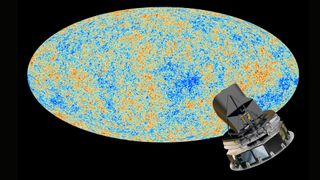
Dark matter and neutrinos may interact, hinting at 'fundamental breakthrough' in particle physics
By Ivan Farkas published
Astronomers found evidence that dark matter and neutrinos may interact, hinting at a "fundamental breakthrough" that challenges our understanding of how the universe evolved.
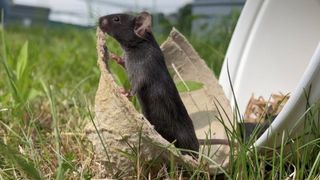
Lab mice that 'touch grass' are less anxious — and that highlights a big problem in rodent research
By Stephanie Pappas published
Mice that experience the real world may be better models for human mental health conditions, compared with lab mice that never leave their cages, a study hints.
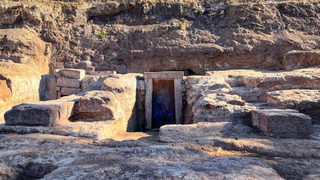
2,400-year-old Hercules shrine and elite tombs discovered outside ancient Rome's walls
By Tom Metcalfe published
Archaeologists have unearthed tombs and a shrine dedicated to Hercules from the time of the Roman Republic.
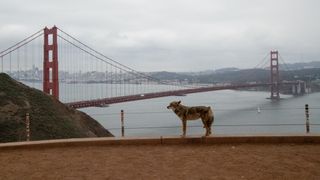
Coyote scrambles onto Alcatraz Island after perilous, never-before-seen swim
By Patrick Pester published
Experts have reacted to a viral video of a coyote swimming to Alcatraz Island in what is a surprising first for the San Francisco Bay Area.
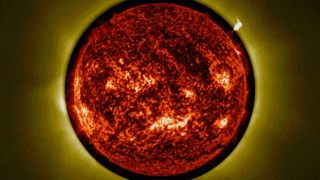
Stunning time-lapse video captured using 'artificial eclipse' shows 3 massive eruptions on the sun
By Harry Baker published
ESA's Proba-3 mission, made up of twin spacecraft capable of aligning to create artificial eclipses, has captured "rare" footage of three solar prominences erupting from the sun's mysteriously hot atmosphere.

Enormous freshwater reservoir discovered off the East Coast may be 20,000 years old and big enough to supply NYC for 800 years
By Sascha Pare published
An expedition off the coast of Massachusetts has confirmed the existence of a freshwater reservoir beneath the seafloor. Now, scientists are starting to understand when and how it formed.
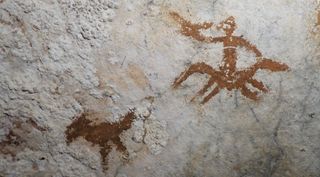
World's oldest known rock art predates modern humans' entrance into Europe — and it was found in an Indonesian cave
By Sophie Berdugo published
The hand stencil is more than 1,000 years older than the previous earliest evidence of rock art.
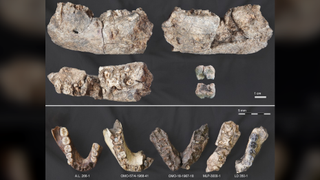
2.6 million-year-old jaw from extinct 'Nutcracker Man' is found where we didn't expect it
By Kristina Killgrove published
A fossil jaw of a distant human relative was discovered much farther north than previously thought possible, revealing new information about diversity in human evolution.
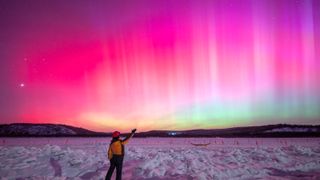
Earth hit by biggest 'solar radiation storm' in 23 years, triggering Northern Lights as far as Southern California
By Harry Baker last updated
Earth's magnetic field was struck by a "severe" solar storm Monday (Jan. 19), triggering vibrant auroras in the U.S. and large parts of Europe. The storm broke a record that had stood for more than two decades.

A woman experienced delusions of communicating with her dead brother after late-night chatbot sessions
By Anirban Mukhopadhyay published
A woman developed psychosis, and her symptoms escalated rapidly, prompting clinicians to retrace the events leading up to her hospitalization.
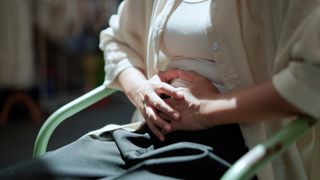
Early research hints at why women experience more severe gut pain than men do
By Isha Ishtiaq published
A mouse study suggests estrogen may increase gut pain by activating specific cells, offering hints to why IBS is more common in women than in men.

Scientists see monster black hole 'reborn' after 100 million years of rest
By Skyler Ware published
Scientists saw an inactive black hole 'reawaken' from a 100-million-year nap with fire and fury.

Tiny improvements in sleep, nutrition and exercise could significantly extend lifespan, study suggests
By Marianne Guenot published
Combining small improvements to several areas of well-being could lead to bigger health gains than improving just one in isolation, a new study suggests.
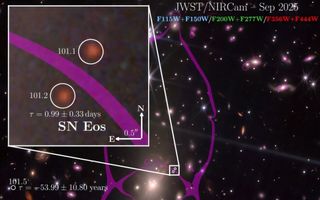
James Webb telescope discovers earliest Type II supernova in the known universe
By Skyler Ware published
An extremely early Type II supernova explosion, named after the Titan goddess of dawn in Greek mythology, occurred just 1 billion years after the Big Bang.

Color blindness linked to lower bladder cancer survival, early study hints
By Marianne Guenot published
People with color blindness may be less able to spot an early sign of bladder cancer, making them likelier to be diagnosed later, a study suggests.
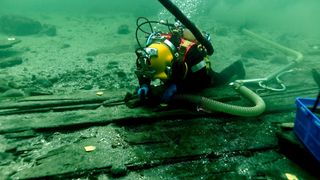
Medieval 'super ship' found wrecked off Denmark is largest vessel of its kind
By Patrick Pester published
Divers have unearthed the largest cog shipwreck ever discovered in a strait off Denmark, signalling a period of economic development in medieval Europe.
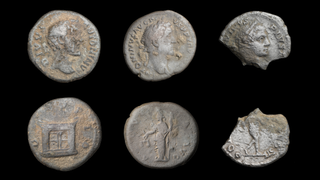
1,700-year-old Roman marching camps discovered in Germany — along with a multitude of artifacts like coins and the remnants of shoes
By Owen Jarus published
Archaeologists in Germany have discovered four Roman marching camps and around 1,500 artifacts, including coins and shoe nails, dating to the third century.
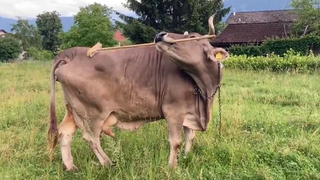
Ever watched a pet cow pick up a broom and scratch herself with it? You have now
By Chris Simms published
A pet cow in Austria started using a broom to scratch herself — the first ever documented case of bovine tool use.
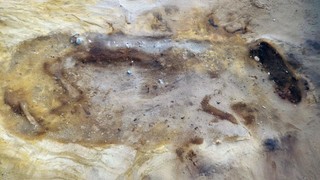
Eerie 'sand burials' of elite Anglo-Saxons and their 'sacrificed' horse discovered near UK nuclear power plant
By Owen Jarus published
The 1,400 year-old "sand burials" of two people and a horse were found near a nuclear power plant construction site in the U.K.
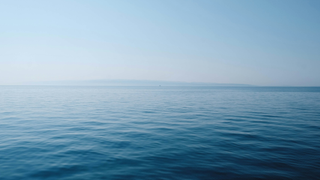
Last year, the oceans absorbed a record-breaking amount of heat — equivalent to 12 Hiroshima bombs exploding every second
By Eos.org, Grace van Deelen published
In 2025, the ocean absorbed an extra 23 zettajoules of heat energy in 2025, breaking the ocean heat content record for the ninth consecutive year.
Get the world’s most fascinating discoveries delivered straight to your inbox.
 Live Science Plus
Live Science Plus










